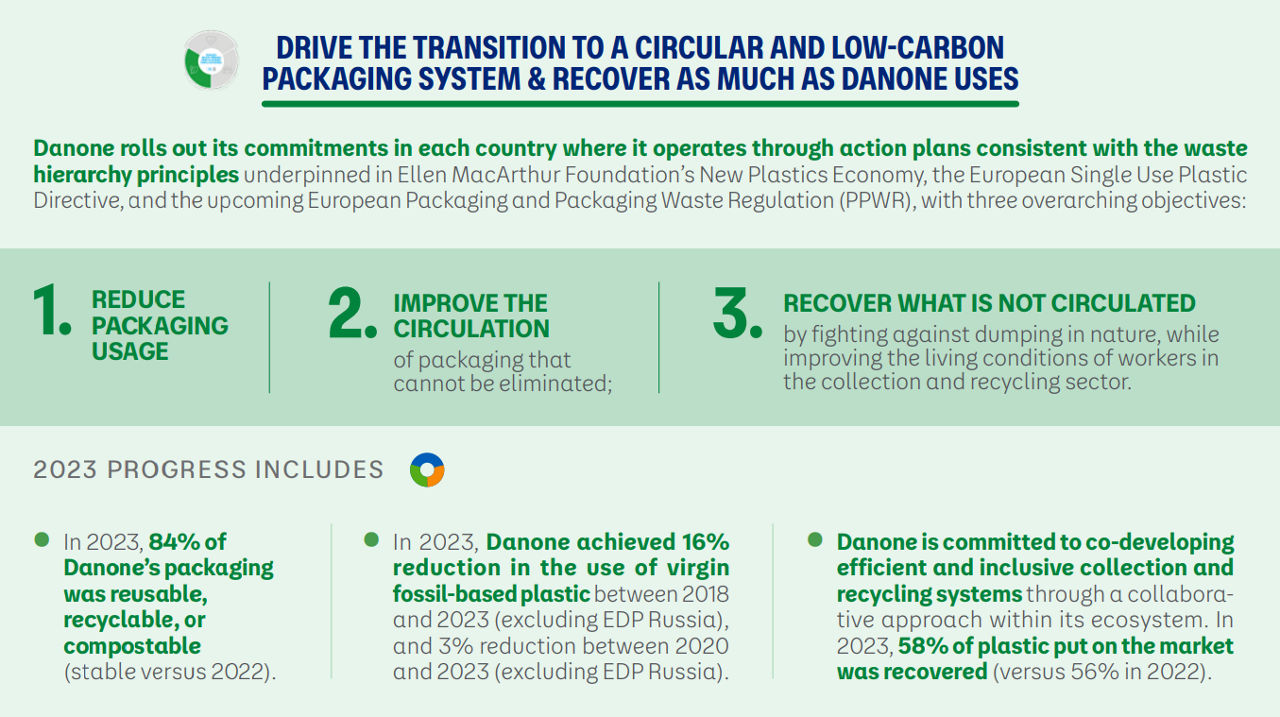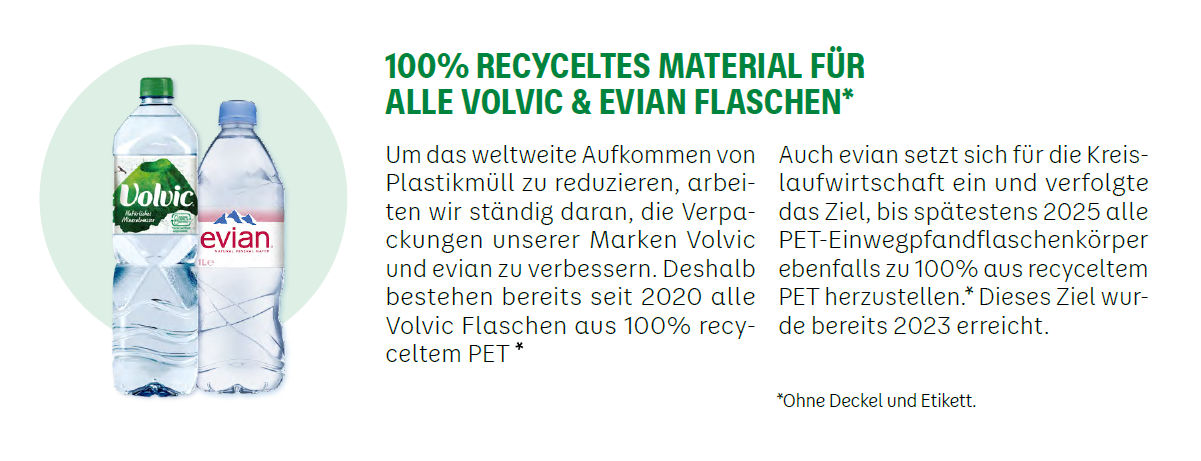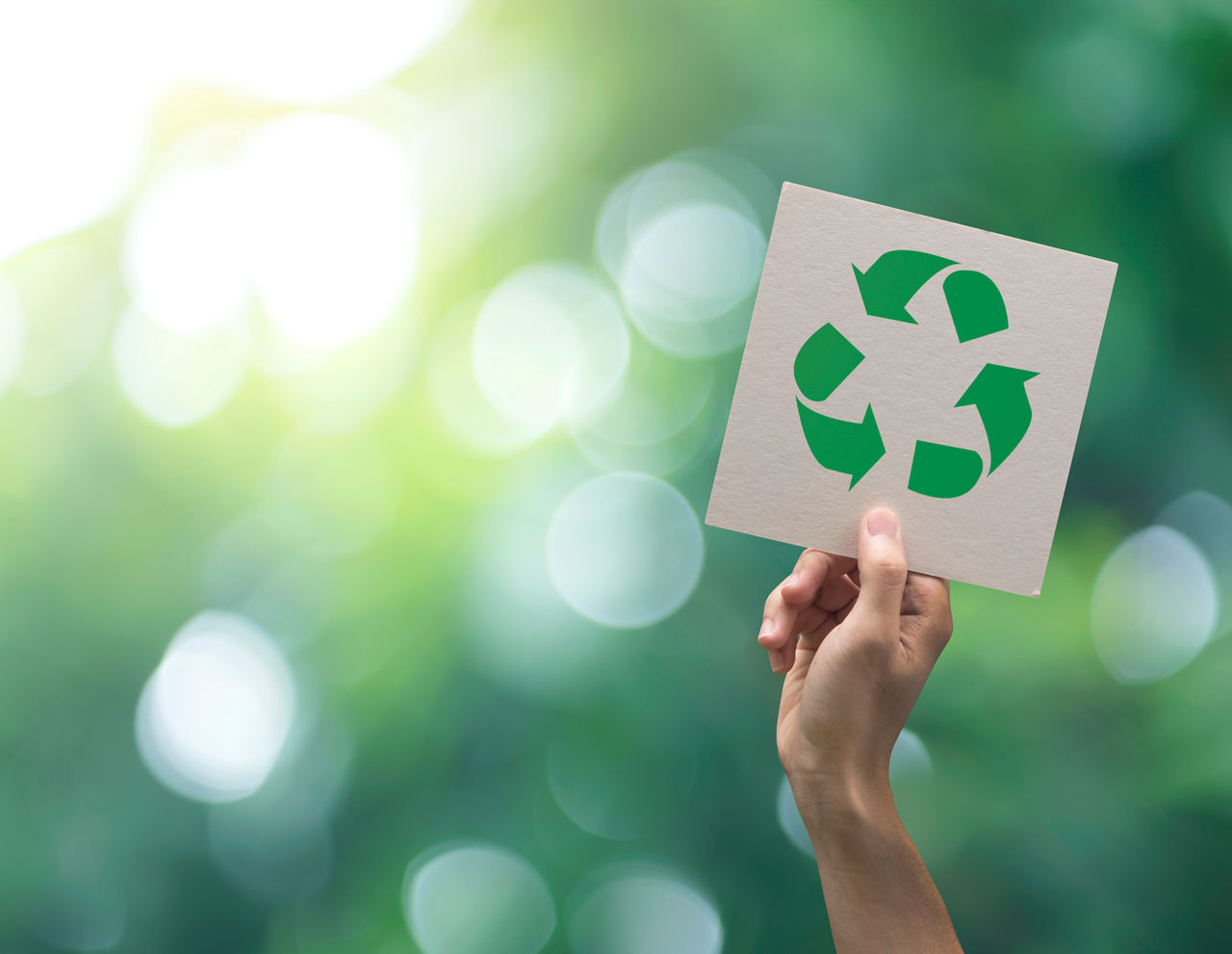Packaging is of fundamental importance in providing people all over the world with nutritious, high-quality food and drink products. We are nevertheless aware this must not come at the expense of the environment. The current mainstream packaging system is not sustainable because it still primarily consists of linear raw materials: raw materials are used to make product packaging which is thrown away once the product has been consumed. This model presents huge challenges, especially in relation to plastics.
As a company committed to protecting and promoting the health of the planet and people, we want to play our part in accelerating the transition from a linear to a circular packaging economy.
Our goal is packaging that enables more effective recycling of the materials used. That means eliminating unnecessary packaging. In future, all packaging required should be reusable or recyclable to a greater extent. We also want to ensure the materials used remain part of the circular economy, as far as possible, and never become waste or pollute the environment.
CIRCULAR ECONOMY FOR PACKAGING
To drive the circular economy forward, Danone joined the Ellen MacArthur Foundation’s New Plastics Economy Initiative in 2017. In 2018, Danone signed the Global Commitment on Plastics which was established by the Ellen MacArthur Foundation in collaboration with the UN Environment Programme and has since worked on implementing our goals.

Danone pro-actively supports new recycling technologies. In 2022, the company entered into partnership with Loop Industries to improve the recycling of PET bottles in closed cycles and to enable the recycling of packaging and materials that are difficult to reuse.
Progress towards a circular economy for packaging has been held back by a series of systemic obstacles. They include underdeveloped collection and recycling facilities for yoghurt pots, inadequate infrastructure for reuse and the shortage of recycled materials. Danone is actively working towards overcoming these obstacles. In 2022, we joined the Business Coalition for a Global Plastics Treaty. This new coalition led by the Ellen MacArthur Foundation and WWF supports a common vision for an international legally binding instrument to end plastic pollution by making its voice heard in the contractual negotiations to lend weight to calls for an ambitious and effective global contract. We will continue our activities until the completion of the multilateral negotiations on the contract scheduled for mid-2025.

Due to the deposit system in Germany, 96.3% of all PET beverage bottles with a deposit are returned. 97.7% are subsequently recycled. This is confirmed by a study by the ‘Gesellschaft für Verpackungsmarktforschung’ (Society for Packaging Market Research).
*Excluding lids and labels.



